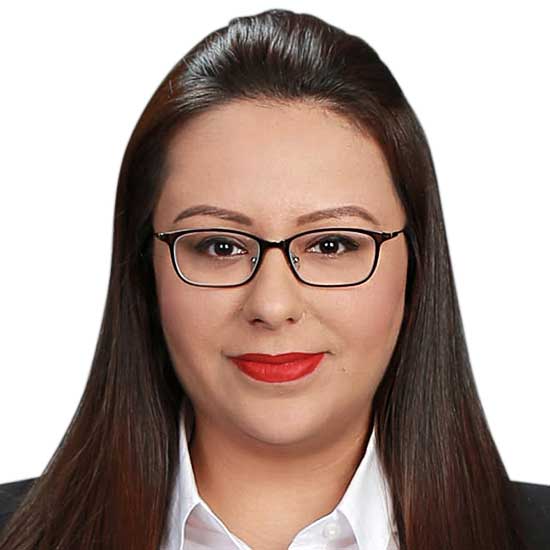At IRB Law, our legal team provides expert legal advice and comprehensive legal services for Islamic estate planning. Please contact our Muslim wills lawyers for a consultation and assistance in making a wasiat or hibah, as well as managing your other Syariah estate planning matters in Singapore.
What Is a Wasiat?
A wasiat, or a Muslim will, is an essential tool in Islamic estate planning, serving several purposes. It allows you to appoint an executor who will be responsible for administering and distributing your estate to your heirs after you pass away. Appointing an executor through a wasiat allows your heirs to obtain access to your estate much faster, saving them considerable time, cost, and effort that would be needed without a wasiat.
According to Islamic inheritance rules, you can bequeath up to one-third of your estate to non-faraid beneficiaries through a wasiat, for example, to non-Muslim relatives, adopted children, or any other persons or organisations. When you draft a wasiat, you can also communicate your final wishes or instructions to your loved ones as a part of your will.
What Is a Hibah?
Hibah, or a deed of gift, is another Islamic estate planning tool. By making a hibah, you can give away anything you own to another person or organisation, referred to as the donee.
In Muslim law, there are several types of hibah:
- Immediate Hibah (Gift): Transfers the title to the donee after you sign the deed
- Non-Immediate Hibah (Promise of a Gift): Carried out and fulfilled during the giver’s lifetime.
According to Islamic inheritance rules, gifts that Muslims give away during their lifetime do not become part of their estate after death. This principle applies both to immediate and non-immediate hibah, making it a useful instrument that complements wasiat and faraid in Islamic estate planning.
Wasiat vs Faraid
While both wasiat and faraid determine how your estate is distributed after your death, there are important differences between them:
| Wasiat | Faraid |
|---|---|
| Wasiat is a Muslim will made according to the Syariah law. | Faraid is a legal framework established by the Holy Quran and Sunnah |
| In wasiat, you can bequeath up to one-third of your estate to non-faraid beneficiaries | Faraid establishes the rules for the distribution of property among heirs according to the Holy Quran |
| By making a wasiat, you can appoint an executor responsible for the administration and distribution of your estate to both faraid and non-faraid beneficiaries | Faraid is obligatory and applies regardless of your personal wishes |
| For a wasiat to be valid, you need to follow a formal procedure, including signing it in the presence of two male Muslim witnesses who are not beneficiaries | Faraid regulates the distribution of your estate to your Muslim heirs |
| You cannot include faraid beneficiaries in a wasiat | You cannot override or alter estate distribution under faraid by a wasiat or any other deed |
| In wasiat, you can distribute a part of your estate to non-Muslims and others excluded from faraid | |
| In the absence of a wasiat, the estate is distributed according to faraid rules |
How IRB Law Can Help?
The Islamic law provides a clear framework for wasiat, hibah, and faraid. Meanwhile, the application of Syariah law to estate planning in Singapore is nuanced and depends on your individual circumstances.
For this reason, it’s always advisable to consult an experienced Muslim wills lawyer when drafting a Syariah will or making a deed of gift related to any of your assets. At IRB Law, we have one of the largest Syariah law practices in Singapore with more than 10 senior lawyers and paralegals, who can help you with:
- Effectively managing your estate through the strategic use of wasiat, hibah, and faraid
- Appointing an executor to administer your estate after you pass away, helping speed up distribution to heirs
- Bequeathing your assets to non-faraid beneficiaries through drafting a Syariah will
- Ensuring that your Muslim will is valid and fully aligned with Syariah law
- Using hibah to transfer any of your assets to your intended beneficiaries during your lifetime

Get in touch for an initial consultation so we can better understand your situation and give you an idea of the options, process and potential fees involved.
Why Us
Why Choose IRB Law

Expertise in Muslim Estate Planning
We advise on Wasiat and Hibah in accordance with Syariah principles and Singapore law to ensure proper wealth distribution.

Culturally Sensitive, Practical Guidance
We provide clear, respectful advice that protects your intentions while meeting religious and legal requirements.

Transparent and Fair Fees
We offer upfront, competitive pricing with no hidden charges, giving you clarity and peace of mind.
Our Lawyers
Meet Some of Our Muslim Wills Lawyers
Mohamed Baiross
Mohamed Baiross is the managing partner of IRB Law and one of the nation's leading lawyers in multiple practice areas, including civil, corporate, and commercial law. With over three decades of experience as a business lawyer, Mohamed Baiross has built a renowned corporate law firm in Singapore, providing expert legal services to global corporations and local businesses.
Kulvinder Kaur
Kulvinder Kaur is a prominent commercial and corporate lawyer and an expert in litigation matters. Kaur is well-known in all courts of Singapore for strong legal representation in the most complex cases across multiple practice areas.
Insights
Featured Content
General Questions
Frequently Asked Questions
Do I need a wasiat?
Can I write a wasiat to exclude any family member from inheriting through faraid?
What are the costs of wasiat?
The costs of drafting a wasiat depend on its complexity, for example, the scope of assets and properties involved, and other details. At IRB Law, we offer affordable and transparent fees for drafting a wasiat tailored to your individual requirements. Please contact our wasiat Muslim wills lawyers for a free consultation and a quote.
How to make a wasiat?
Are CPF savings distributed according to wasiat or faraid?
No, according to the inheritance laws, your Central Provident Fund savings will be distributed according to your nomination, which is a valid form of hibah. If you don’t make a nomination, your CPF funds will be held by the Public Trustee’s Office (PTO).
In the absence of nomination, your family will have to obtain the Inheritance Certificate from the Syariah Court, provide the required paperwork, and pay associated fees. For this reason, it is strongly recommended to make a nomination even if you want your CPF funds to be distributed according to faraid.





